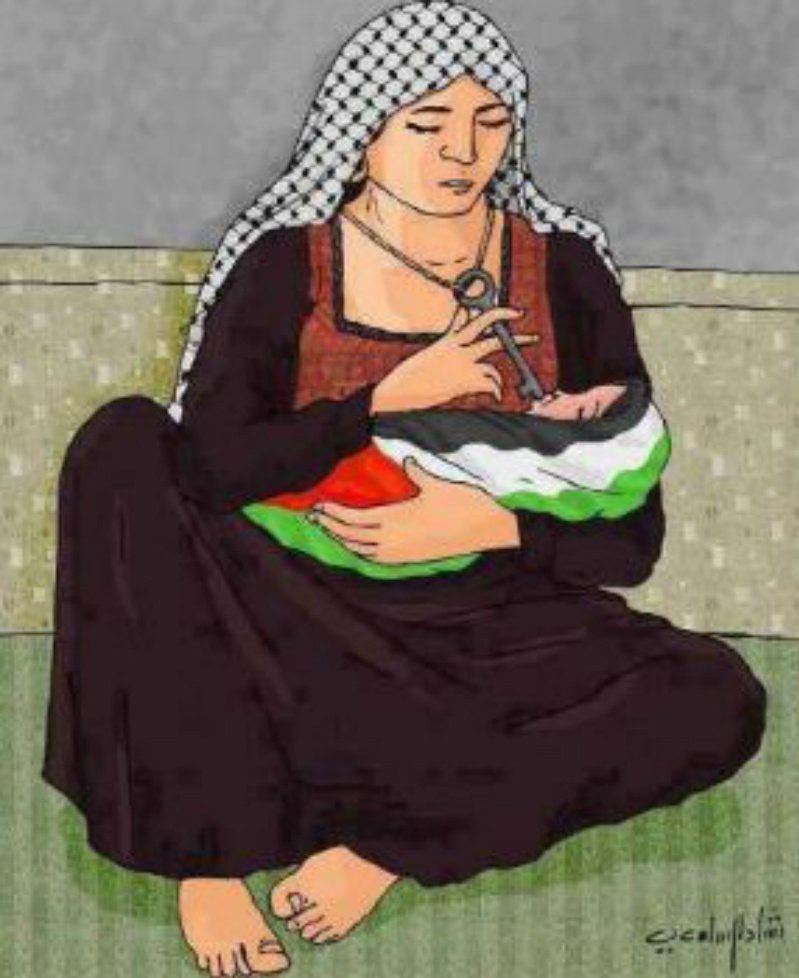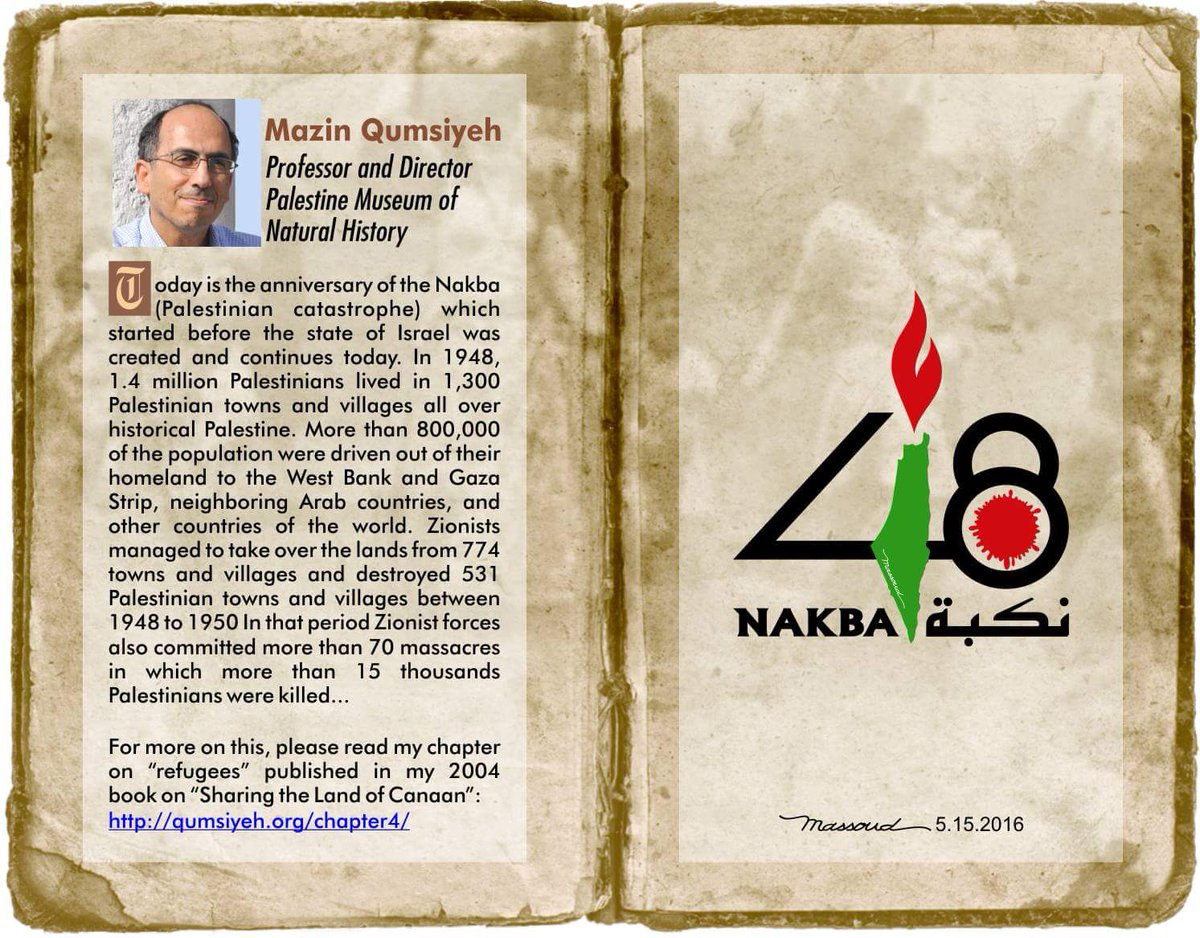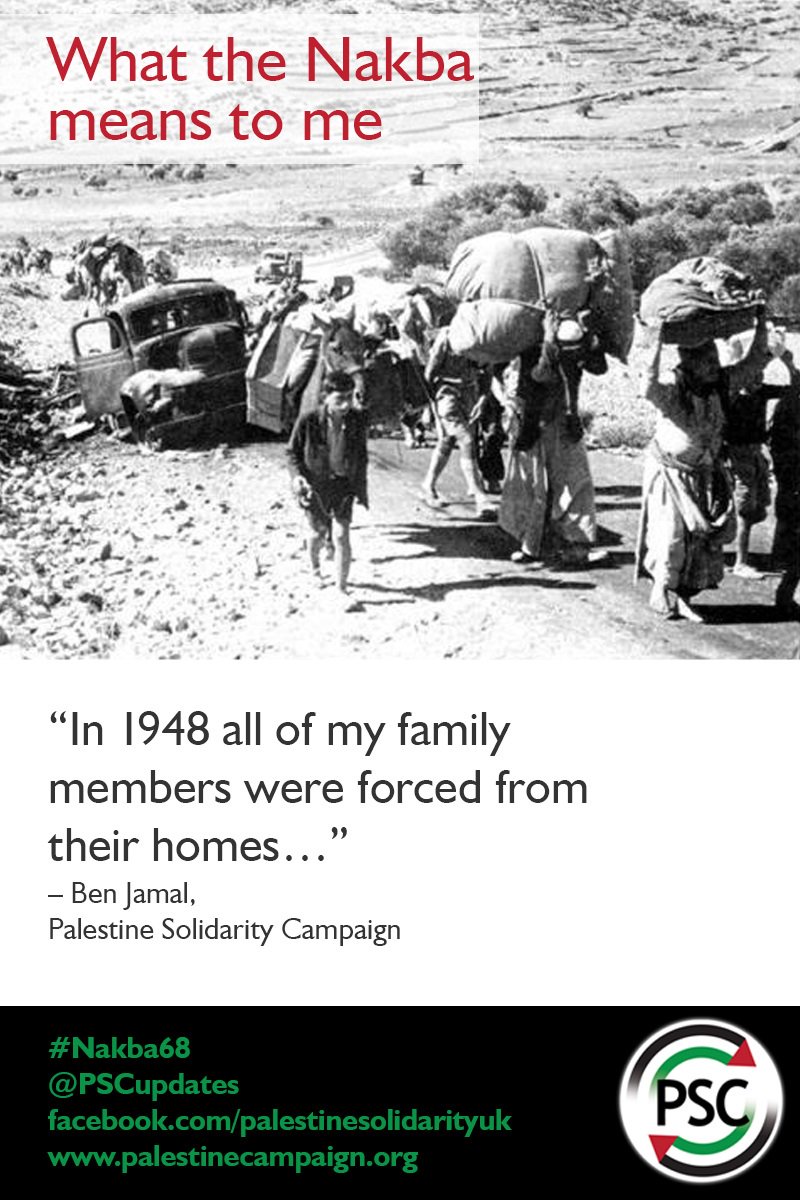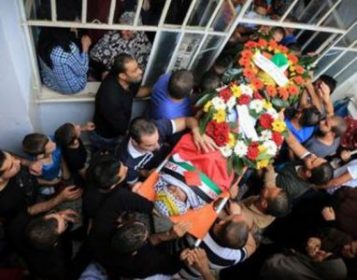[Ed. note – Sixty eight years ago more than 700,000 Palestinians were driven out of their homes and into the West Bank, Gaza Strip, and neighboring Arab countries. The Zionists not only displaced large numbers of people but also carried out massacres. Today is the day of remembrance. As may be expected, Israel commemorated the event by carrying out attacks against the occupied population. ]
‘The Nakba Continues’: Israeli Forces Conduct Multiple Raids Across the Occupied West Bank
BETHLEHEM (Ma’an) — Israeli forces raided multiple neighborhoods across the occupied West Bank overnight Saturday, detaining at least three Palestinians, launching tear gas canisters and stun grenades, and setting fire to olive trees, as Palestinians around the world commemorated the 68th anniversary of the Nakba.
In the northern district of Qalqiliya, dozens of Palestinians suffered from tear gas inhalation, and several trees caught fire when clashes erupted between local youths and Israeli forces in the village of Kafr Qaddum.
Coordinator for a popular resistance committee in the village Murad Shtewi said the Israeli army “turned Kafr Qaddum’s sky into a cloud of poisonous gas” after firing tear gas heavily and randomly. Dozens of olive trees in the area caught fire from Israeli forces-fired tear gas and stun grenades.
Shtewi added that civil defense vehicles were prevented from reaching the fire because Israeli forces had closed the roads with dirt berms, forcing firefighters to walk up a hill to control the fire.
To the south in the occupied West Bank district of Hebron, Israeli forces raided the downtown, al-Khila, and al-Thahir areas of the village of Beit Ummar, detaining one Palestinian.
Local activist Muhammad Ayyad Awad said Israeli forces raided the house of Ibrahim Abd al-Hamid Abu Maria, and detained his son Abd al-Nasir, 19.
In the southern district of Bethlehem, abnormally excessive use of force by Israeli forces was reported during an overnight raid in al-Azza refugee camp.
Locals reported a night of chaos marked by at least three explosions and two sets of exchange of fire while Israeli forces showered the camp with tear gas.
An Israeli army spokesperson told Ma’an Israeli forces detained two Palestinians near Bethlehem and one next to Ramallah in the occupied West Bank overnight. She added she was looking into the reports of clashes in al-Azza and Kafr Qaddum.
Saturday night’s raids come as Palestinians around the world commemorated on Sunday the 68th anniversary of the beginning of the Nakba, or catastrophe, when 750,000 Palestinians were forcibly displaced during the creation of the state of Israel.
Many perceive the 1948 atrocities — marked by the destruction of 531 Palestinian towns and villages as well as 33 massacres by Israel — as just the beginning of a Nakba that has continued unabated to this day.
“Since 1948, Israel has employed deliberate and systematic acts of violence, colonialism, and destruction at the expense of the Palestinian people, their rights, lands, and resources,” Senior PLO official Hanan Ashrawi said in a press release published Saturday titled, “The Nakba continues.”
Israel’s systematic dispossession and forced displacement of the Palestinian people entered a new era in 1967, when Israel illegally occupied the West Bank and East Jerusalem, creating another 430,000 Palestinian refugees, according to the PLO.
The decades-long occupation of the Palestinian territory is marked by near-nightly raids by Israeli forces into Palestinian-controlled areas of the West Bank, with more than 90 search and arrest operations conducted per week since the start of the year, according to UN documentation.
‘Train of Return’ Rolls Through Bethlehem as Refugees Commemorate Nakba Day
By Sheren Khalel
Several hundred Palestinians marched through Bethlehem on Sunday in commemoration of the 68th anniversary of the Nakba, which means catastrophe in Arabic and marks the period between 1947 and 1948 when an estimated 750,000 Palestinians were forcibly expelled from their homes and hundreds of others are believed to have been killed.
The theme of the Nakba march this year was the “Train of Return” and a train was made by volunteers from the three refugee camps in Bethlehem city for the march. The train was powered by a car built into the front of the train, which pulled the other carts. The train weighed around 1.5 tons, was made up of five carts, and took two weeks to build, according to the organizers of the march.
My Family’s Account of Nakba Day
By Zack Sabella
Nakba day is a significant day for the Palestinian people. Almost every family has a story to tell about that day in 1948 when many Palestinians were forced to leave their homes to seek refuge in less troubled lands. For the Sabella family, Nakba day is a day of reflection. Today, I visited my aunt Hilda and uncle Maurice in the Old City of Jerusalem along with a friend and asked them to share more about their memories of Nakba day.
My aunt takes a sip of her sweetened Arabic coffee and looks at me with somber eyes: “I still have the paper and the key, you know,” she says. Aunt Hilda was talking about the piece of paper that proved my grandfather’s ownership of his home in Katamon in West Jerusalem in the year 1936. I ask her to tell me more about that house. “Your grandfather purchased the estate from the Latin Patriarchate in 1936 and our family lived in it until 1948 when the war broke out,” she says. “It was a beautiful home with many empty fields around it,” my aunt recalls. “I still remember the view from our front door.”
I asked her about what happened in 1948. She shakes her head, takes a puff from her cigarette and takes me back. “Your grandfather used to love this home, but when the Hagana bombed Katamon’s Semiramis Hotel killing 26 people in the process, he decided it was time to leave.” The Hagana was the Jewish underground militia which was active at the time and later formed the core of the Israeli military. My grandfather was worried that the neighborhood, which was the only Arab neighborhood between two Jewish ones, would continue to be targeted by the notorious Jewish militia. He chose safety first, as did many others who were forced to flee in search of safer grounds.
My grandfather Zacharia, my grandmother Margaret, my father Bernard, my uncles Abdallah and Maurice, and my aunts Hilda and Bernadette packed their bags and made their way towards Lebanon where they sought refuge in the small town of Ghazir. They stayed there for nine months until they decided to return to Jerusalem and settle in the Old City, which was under Jordanian rule at that time. This is the very home where we were sitting drinking our Arabic coffee and talking today. It is the very home where my family meets for holidays like Easter and Christmas and where we honor and keep alive the many traditions that were celebrated by my grandparents. Back in 1948, this house in the heart of the Old City of Jerusalem was a one room flat. There was no kitchen, no toilet, and no running water. The seven members of the Sabella family lived there in these dire conditions for seventeen years. “But we managed,” says my aunt Hilda.
In 1965, the house was renovated and for the first time, the Sabella family, which by then consisted of ten members with the addition of my uncle Tony, my aunt Therese and my uncle David, was able to enjoy a home with running water and an en-suite toilet. In 1972, my family went back to the place where their Katamon home once stood. “We went back there to visit our home but found that it had been destroyed and in its place was a sixteen-apartment building complex,” my aunt Hilda recalls. My aunt tells me that my family stood there in silence for a while reminiscing about their childhoods and the surrounding empty fields where they used to play and wander.
We, the Palestinians, commemorate Nakba day not because we hate our neighbors, but because while our neighbors celebrated, we suffered. Each Palestinian family has a story to tell which it holds dear to its heart about that day. How can anyone ask my father, my aunts or my uncles to forget the memory of Katamon, to bury their childhood memories of that place, or the empty fields that surrounded their home? We commemorate Nakba day because in a way our Nakba is still ongoing to this very day. Whether it’s a family eviction in Silwan, or the seizing of land in Beit Jala, or a destruction of a Bedouin village in the Jordan Valley, or the stripping of residency rights for Palestinians in Jerusalem, the suffering of our people continues and all we have is our memories to hang on to. We will never forget our past, but perhaps when our people are free, independent, and lead a dignified life, we can start looking for the future rather than mourn our past. But until that day happens, our people will continue to go back in time to commemorate our Nakba.
The views expressed in this article are the sole responsibility of the author and do not necessarily reflect those of the Blog!




















No comments:
Post a Comment